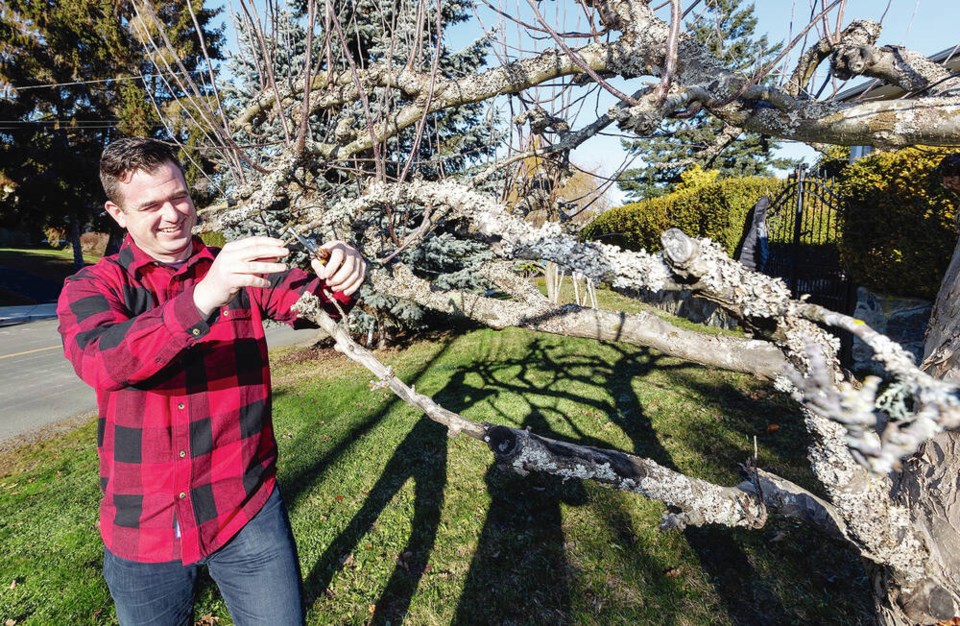A non-profit organization that harvests and distributes fruit to food banks and soup kitchens says it needs a “major benefactor” to ensure thousands of kilograms of plums, apples and pears don’t end up rotting on the ground this fall.
Volunteers with the LifeCycles Project typically pick fruit and other produce for Greater Victoria homeowners who can’t or don’t want to do it. The harvested fruit — apples, plums, pears, figs and quince — eventually makes it way to the Mustard Seed food bank and as many as 40 other social-service agencies.
The organization, which was founded 30 years ago, survives on single-year grants, private donations and volunteers, said Jess Gunnarson, chair of the board of the non-profit organization.
But after funding sources dwindled last year, the harvest was almost cancelled. “Last year we were faced with having to scale back significantly, as funding had dried up, putting popular programs like the Fruit Tree Project in doubt,” Gunnarson said.
A last-minute appeal resulted in an “impressive” volume of donations, he said — enough for the program to continue until this year. After that, the future is uncertain.
“This seems to be the new reality for non-profits, just surviving year-to-year,” said Gunnarson. “While we can do meaningful work with what we have, what we need is a major benefactor who can promise us stable multi-year funding.”
The funding would give the organization the ability to hire a full-time program co-ordinator for its Fruit Tree Project, so it could increase the number of volunteers needed.
The organization currently has only one paid staff member who manages the office, writes grant proposals and does general administration work as well as overseeing volunteers, Gunnarson said.
“Right now we have to turn people away due to limitations placed on existing staff. To maximize our programs, we need to create an infrastructure to manage both donors and volunteers.”
He said the group needs about $50,000 a year in stable core funding for the new position, ideally from one benefactor or organization.
“Every day I drive by a house with a fruit tree in the garden. When I see the fruit in that unpicked tree slowly rotting, I think of an opportunity lost. Similarly here, I feel that we have a duty and responsibility to the community to come up with a solution that will enable us to continue to deliver our sustainable food-security programs.”
Programs offered by LifeCycles also include the Victoria Seed Library, where people can “check out” locally adapted vegetable seeds in the spring and return in the fall with seeds from the propagated plant, and the Welland Community Orchard in View Royal, a community garden that is home to almost 200 fruit trees and vines.
• For more information, go to lifecyclesproject.ca.
>>> To comment on this article, write a letter to the editor: [email protected]



